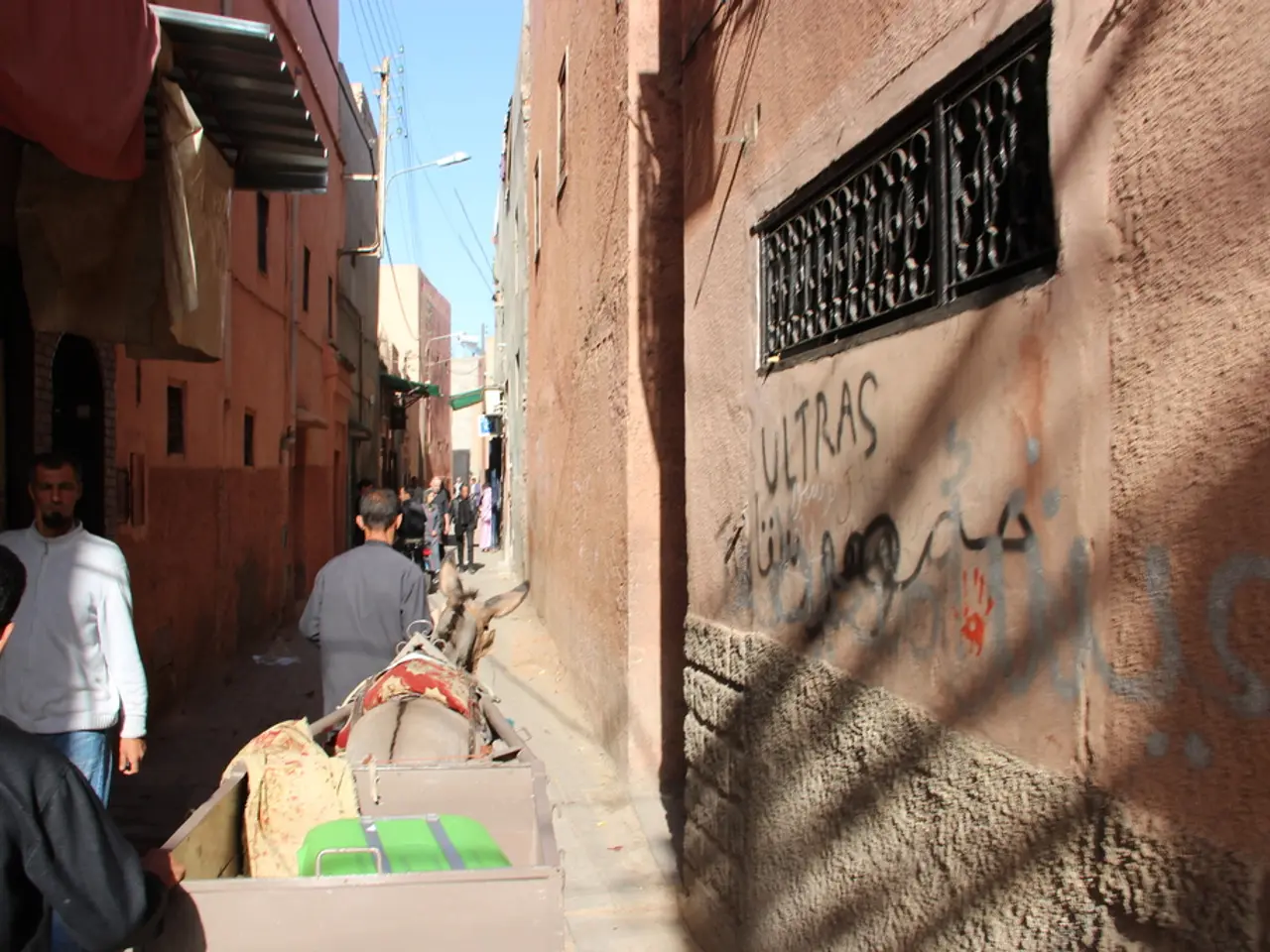City authorities have made a firm declaration: Allegations of a local AfD councilor being influenced by overseas protest instigators
In a recent city council meeting held on June 25th, the proposal by the Alternative for Germany (AfD) party to implement a penalty catalog for community shelters in Leipzig was rejected. The motion did not receive a majority with 15:37 votes and 6 abstentions.
The AfD's proposal, which seems to be based on the assumption that community shelters are prone to rioting and destruction, has been met with opposition. The Left faction's motion, on the other hand, shows a different perspective, suggesting that asylum seekers in community accommodations can be viewed differently than the people-haters from the right-wing spectrum.
The proposal from the AfD faction also included an extra proposal asking the city to create a penalty catalog defining disorderly conduct and imposing fines. However, Dr. Martina Münch, Social Affairs Mayor of Leipzig, has pointed out that collecting fines from people in community shelters would be impractical due to their limited financial resources. She also warned that even a partial takeover of the costs would burden the city's budget.
FDP city councilor Sven Morlok stated that if serious damage is caused, it can be much more expensive than a fine according to a penalty catalog. He emphasised that all community shelters have house rules enforced by the operators.
Leipzig, like other German municipalities, applies the same general structure for shelter accommodation as the rest of Germany. Asylum seekers are usually accommodated in initial reception centres or decentralized shelters, often provided by local authorities or non-profit organisations. The costs are generally covered by the state and municipality, with any required contribution typically a very small percentage or a flat fee deducted from benefits.
For homeless German citizens, arrangements are different. Local welfare agencies cover the costs of emergency shelters, often at no direct cost to the individual. Fees or co-payments are rare but possible for night shelters or special projects, though these are usually minimal and covered by social benefits.
In summary, the city council meeting in Leipzig discussed a fee regulation for shelters, including those for homeless people, asylum seekers, late repatriates, and other foreign persons. The AfD's proposal for a penalty catalog only applies to community accommodations, not to accommodations for homeless people and late repatriates. For the most precise and current information, contacting Leipzig’s Ausländerbehörde (foreigners’ registration office) or the local social welfare office is recommended.
The AfD's proposal for a penalty catalog in community shelters, driven by the assumption that these shelters are prone to harm, was met with opposition. The policy-and-legislation surrounding shelter accommodations in Leipzig houses a variety of groups, including asylum seekers, late repatriates, and foreign persons, with different regulations applying to each, as evidenced in the general-news article discussing the city council meeting. In the realm of crime-and-justice and political discourse, the AfD's proposal serves as a topic of debate in the ongoing discourse of city legislation and the treatment of specific demographic groups.




